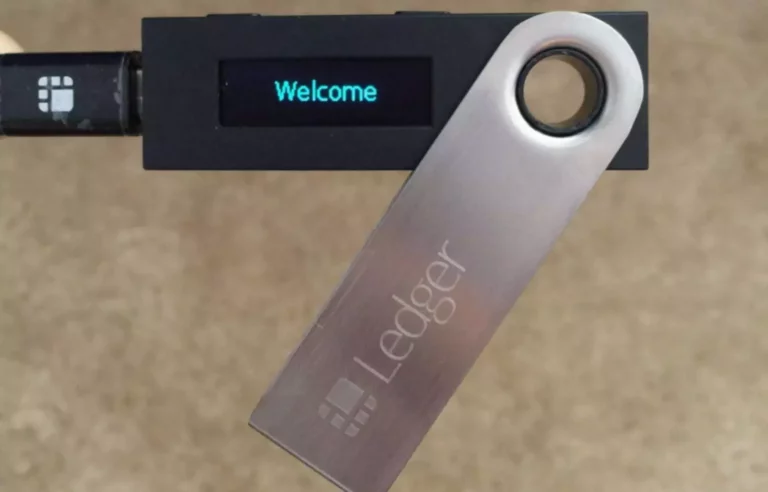Content
A custodian platform with trading functionality, research tools, and real-time market data would enable savvy crypto investing, all from your custody account. You can do self-custody, which gives you control but brings significant risks, such as potentially losing your private What Is a Crypto Custody keys and passwords or managing security breaches yourself. Custodians can mitigate these risks by using sophisticated security protocols and policies. People have developed many ways to store private keys offline—on paper, hard disk, or in commercially available electronic wallets manufactured for security.
Transparency and Segregation of Funds
- To integrate crypto assets into the current systems would involve significant financial and human capital considerations.
- As Cryptobunq, we carry out our digital banking services with a high level of trust and confidentiality for the safe storage of your digital assets through blockchain technology.
- Additionally, 41% of institutional investors hold cryptocurrency in their portfolio today, with an additional 15% planning to hold digital assets in their portfolios within the next two to five years.
- The custodian’s role is limited to holding securities in client accounts and processing client-initiated transactions.
This is achieved by either storing the assets online, a method called hot storage, or offline, known as cold storage, or through a multiple approval approach, known as multi-signature and smart contract wallets. Crypto custody solutions have become more common as retail and corporate investors increasingly consider them a bridge between a conventional investment environment and the changing cryptocurrency world. Banking institutions worldwide https://www.xcritical.com/ are beginning to offer managed custody to their traditional clients. For example, the US regulator, the Office of the Comptroller of the Currency OCC, recently green-lighted banks for cryptocurrency custody services.

Blocktrade 4.0: Pay with Cryptocurrency at more than 100,000 stores
The SEC safeguarding rule applies to all assets held for investors, whether crypto or other funds. All assets must be held by a qualified custodian as defined by the Investment Advisers Act of 1940. Coinbase Custody is one of the largest and most well-respected crypto custodians, as demonstrated by its custodial partnership with the U.S. Assessing whether a state-chartered trust company qualifies under this definition turns on the interpretation of “fiduciary powers” for the purposes of that state’s banking oversight function. The previous illustrations of the likely safekeeping challenges for bank custodians also apply for broker-dealers using banks as their control location. To see how the custody rules might apply, let’s first look at how crypto assets are purchased, sold, Digital asset and held today.
Why Custody Solutions are Crucial for Institutional Investors
When the Securities and Exchange Commission authorized Bitcoin ETPs, crypto custody became even more important. More brokers acquired crypto assets to create cryptocurrency exchange traded products, and they will need to be secured. This includes encryption, multi-factor authentication, and physical security measures like geographically dispersed data centers. The most advanced custodians also use techniques like sharding of private keys, where the key is split and stored in multiple locations, reducing the risk of a single point of failure.
Applying Investment Regulations to Crypto Asset Transactions
Cryptocurrency custody solutions are storage and security vault systems used to hold large quantities of digital currencies or tokens. Crypto Custody solutions are one of the latest innovations on the FinTech market and are the herald of institutional capital entry into the Blockchain industry. Each offers various features, such as multi-signature wallets, offline keys, and quality assurance protocols, as well as analytics services that give investors insights into their portfolios. The ideal crypto custodian offers seamless integration with cryptocurrency exchanges and robust trading capabilities. Thus, they are responding to the need for seamless exchange integration while keeping assets secure.
It’s important to note that different assets live on different blockchains – just like the condo owners live on different floors. For example, if I want to send a package to John J. J. Schmidt, who lives on the 4th floor in unit 4B, all of that information is important to make sure it reaches the proper destination. Crypto is similar in that you need to know the asset you’re sending, the blockchain it’s on, and the corresponding address of the receiver. Each of us has extensive theoretical and practical experience in trading, cryptocurrencies, and blockchain.
Using a qualified custodian generally means that your assets are in a bankruptcy-remote position and likely have some insurance protection should anything happen. Even though the blockchain provides a high level of security — given that all transactions are recorded —, it’s important to safeguard access to a company’s digital assets. Anchorage is notable for being the first federally chartered digital asset bank in the United States.
DTTL and each of its member firms are legally separate and independent entities. DTTL (also referred to as “Deloitte Global”) does not provide services to clients. In the United States, Deloitte refers to one or more of the US member firms of DTTL, their related entities that operate using the “Deloitte” name in the United States and their respective affiliates. Certain services may not be available to attest clients under the rules and regulations of public accounting.
There are countless essential differences between crypto custody and traditional custody. Cryptocurrency is a rapidly developing industry as more investors demand secure storage for their digital assets. As with other financial asset classes, there is a strong need to ensure the safe custody of crypto assets. The owners (investors) of these crypto assets should ensure maximum security of private keys as these are the proof of ownership. Safekeeping of private keys is a major security concern for every owner, as any security breach could result in a complete loss of assets.

For many institutional investors, it’s imperative that their cryptocurrency assets are placed in separate storage from other clients. Not all custodians offer this feature, so it’s an essential criterion for selecting your crypto security partner. Digital asset custodians are currently leading and shaping the crypto landscape and represent a significant disruption to the traditional financial services sector. However, it is likely that the traditional asset custodians start playing a greater role in how this investment category grows and evolves.

Conversely, third-party custodians, like crypto exchanges, control private keys when entrusted with custody, exposing assets to regulatory restrictions and security risks. The motto “not your keys, not your coins” underscores the importance of retaining personal control in the self-custody movement. The utility of cryptocurrency custody solutions lies in the safeguarding of cryptocurrency assets. Private keys used to conduct transactions or access crypto holdings are a complex combination of alphanumerics. Online wallets are a potential solution, but they have also proven susceptible to hacks. Fireblocks is another distinguished crypto custodian platform, delivering an enterprise-grade infrastructure for handling digital assets.
Most providers will likely use a combination of cold and hot storage to secure cryptocurrency but also provide a way to access it. Potential investors in digital assets are often discouraged by the perceived complexity involved. However, custodians can leverage their technology and regulatory expertise to provide investors with a greater sense of comfort and improved ease of use. If investors choose to hold assets privately or with unlicensed custodians they carry a significant risk of loss from hacking or other events. However, licensed custodians are more likely to have access to trusted insurers and therefore provide some recourse and security in the event of a loss.
It provides the necessary security and compliance for institutions to safely invest in and manage digital assets, reducing risks such as theft and fraud. As America’s oldest bank, BNY Mellon has a 238-year legacy of trust, resilience, and innovation. As the crypto industry grows, so does the demand for reliable crypto custodians. While their responsibilities aren’t dissimilar to those of traditional asset custodians, the crypto space is vastly unique in and of itself, with a constant influx of new players and technology.


